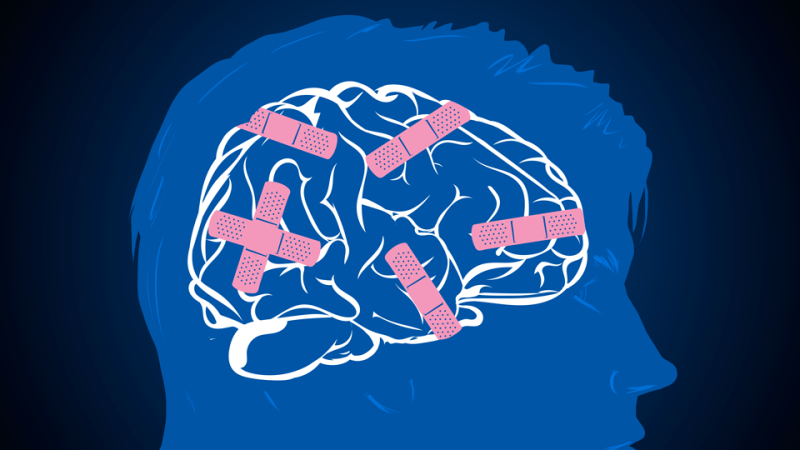The most shamefully neglected health problem in Pakistan is mental illness which includes 20 to 30% of the population, a large majority of the affectees being women and youngsters.
Mental Illness, whenever any person in our society listens to this word the first thing comes to his mind is ‘crazy’ or the person that is not good enough for the society or something supernatural.
The mental health experts pointed out that unlike other medical or physical conditions, people suffering from psychological problems report to doctors less frequently. The social stigma attached to mental health problems and lack of awareness about them is the major reason that most people don’t seek help.
Our society is still wary about openly discussing psychological issues. In particular, gender-related problems are misconstrued as evil or perverse. People recognise the negative stigma and discrimination associated with having mental illness and don’t want to be labeled as ‘mentally ill’ or ‘crazy.’ They may also have concerns about how such a label could negatively impact their marriages, career, education, or other life goals.
Mental illness does not only mean that someone is crazy or may harm others but depression, stress, anxiety and OCD are also major mental issue and about 65% youngsters in Pakistan are suffering from these invisible problems. Depression affects people of all ages, from all walks of life. It causes mental anguish and has impact on people’s ability to carry out even the simplest everyday tasks. At worst, depression can lead to suicide, according to WHO, is the second leading cause of death among 15 to 29-year-old people. Sadly, Pakistan is one of those vulnerable countries where stress, anxiety and depression are at highest level. With 200 million population, one out of three people are suffering from these curable diseases.
Many people believe they are a failure when admitting something is wrong with their mental health. Even if someone is interested in getting treatment, his family is not ready to help him because of our so called ‘social norms’.
I still remember the day when my close friend committed suicide because of severe depression. How her educated family thought if they consult any psychologist the society will not accept her and most importantly what about her ‘Rishta’? Who will marry her? Her grandmother also thought that an evil was controlling her mind. And her family with typical thinking pressurised her to end up her life.
I remember when I had a discussion with few people about consulting a psychologist if they suffer from depression or any other mental illness, and the result was very disappointing for me. Even the educated people were not ready to get consultation from a psychologist. Because of society’s stigma against mental health, they are afraid of being called as crazy as these problems are not visible so they cope with it. Some of them also believed that mental health issues are due to some supernatural activities like black magic, etc.
“Mental health is more important than physical health but sadly people in our society feel shame in consulting. Mental health needs great deal of attention. In our country where people are suffering too much, the human charge of neglecting mental health can no longer be ignored”, said Professor of Psychiatry & Behavioural Sciences Dr Imran Ijaz.
How many more patients will have to suffer in silence because of the stigma and shame in our society? How many more will lose in this entrenched resistance to care?
Mental health is real, it is not some kind of joke, but has an impact on everyone just needs to be accepted. Suffering from such illness is nothing to be ashamed of. We all deal with mental problems and yes, I also have mental illness, but that does not mean I am crazy, scary, dangerous, violent or weak. That does not mean I am stupid, weird, unreasonable or a loser.
We need to change the culture of this topic and make it ‘Okay’ to speak about with anyone. We need to break the silence. We must break this stereotype.






